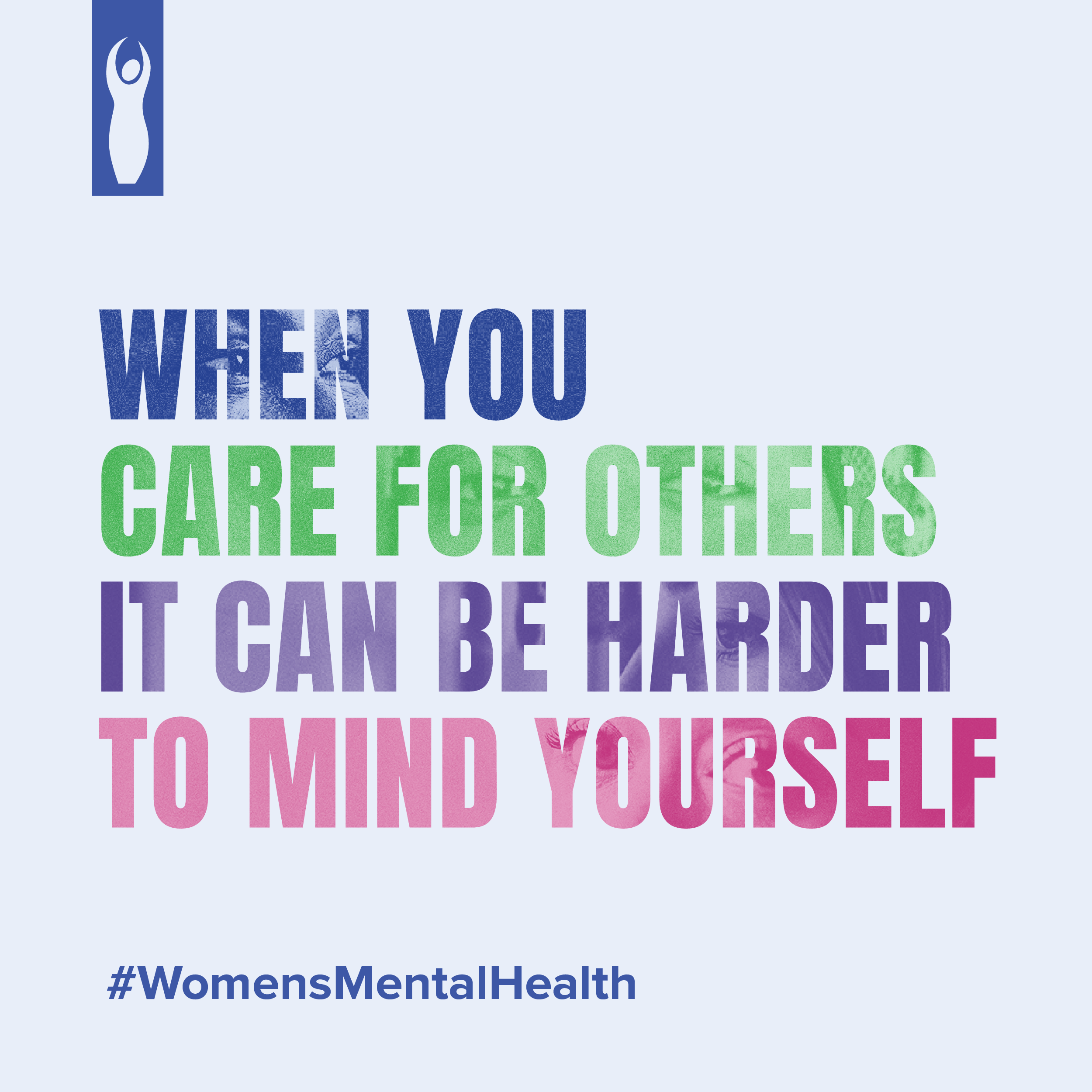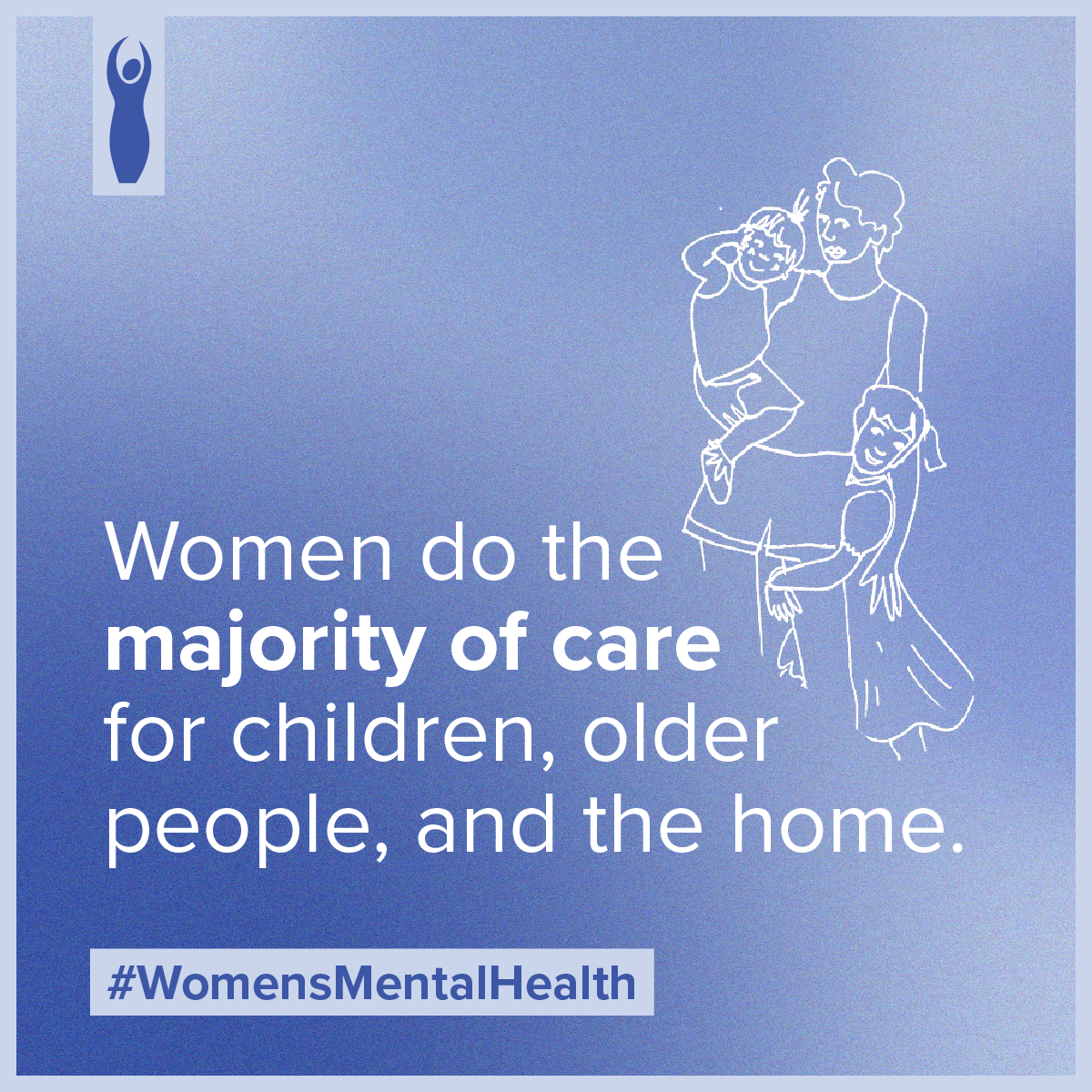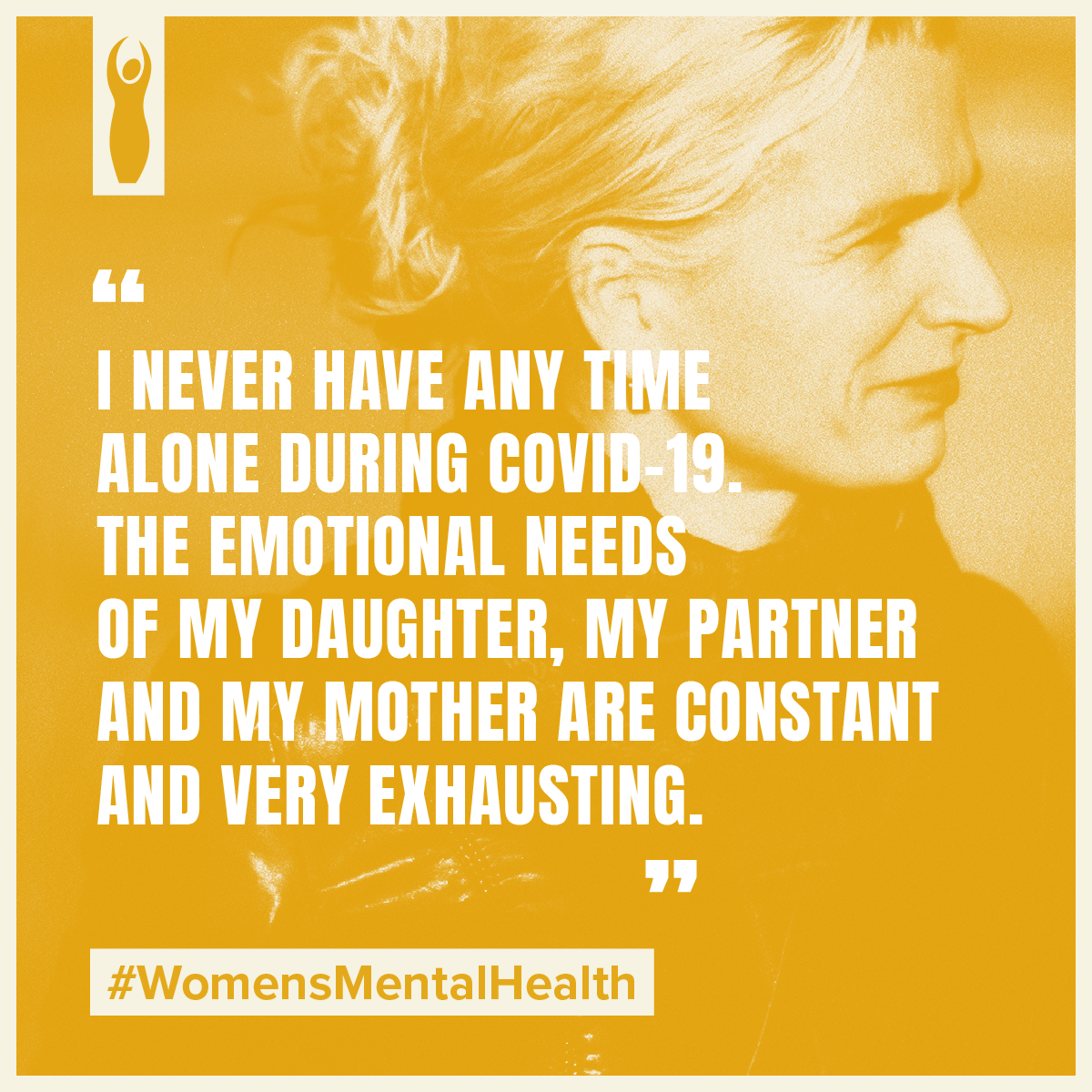
If you’ve been affected by any of these issues you can find information and guidance on HSE yourmentalhealth.ie and https://www.nwci.ie/womens_mental_health_support
In NWCI, we know that mental health is a central issue in women’s lives. In our work we seek to draw attention to women’s mental health needs and to work with services to improve mental health supports for women.
In recent years, people across Ireland have participated in a much-needed conversation around mental health which has helped to dismantle longstanding stigmas around experiencing mental illness and distress.
As part of our conversations about mental health, we need to acknowledge the different experiences women have throughout their lives which can impact their mental health and wellbeing. Our 2019 digital campaign on women’s mental health highlighted the challenges and inequalities many women face which can put a strain on their mental health, including violence, gender stereotypes, and the pressures of caring.
In our 2020 campaign - When you care for others it can be harder to mind yourself – we are focusing on the impact that caring for others can have on women’s mental health, including during the COVID-19 pandemic which has seen many women’s caring responsibilities increase.
Caring includes care for children, care for older adults and adults with disabilities and looking after the household. While caring for our family and loved ones can be a deeply rewarding activity, caring and running a household can also be physically and emotionally demanding.
We know that women in Ireland do the majority of care and work in the home[2]. The 2019 report Caring and Unpaid Work in Ireland[3] reported that 45% of women and 29% of men provide care for others on a daily basis (childcare and/or adult care). 81% of women recorded daily involvement in housework, compared to 44% of men. 40% of women reported daily involvement in childcare compared to 26% of men.

More recently, COVID-19 has highlighted the value and importance of care. Evidence also indicates that women’s caring responsibilities have increased during COVID-19.[4] School and childcare closures and the needs of cocooning older relatives put extra pressures on many women to look after their families and loved ones.
A recent CSO survey [5] highlighted that women’s well-being is being more adversely affected by the COVID-19 crisis.
It is also crucial that we understand that some women face more challenges when caring. Women are a diverse group and we must examine women’s mental health through different intersections of identity, social positions, and social structures. For example, we know that Traveller women are almost twice as likely to be looking after home and family[6], and that 86% of those who are parenting alone are women[7]. Migrant women living in Ireland often do not have the help of their wider family. Women living with an abusive partner are likely to fear for their own safety and the safety of their family.
In our health work, NWCI endeavours to consider the impact of women’s life experiences on their health; to recognise women as experts in their own health; and to be intersectional.
Our 2020 campaign draws on what women have told us in different elements of NWCI’s health work, including: our 2018 report Out of Silence – Women’s mental health in their own words, which brought the experiences of women to the fore; consultation with our member groups; and our FemFest engagements with young women.
In May, we also carried out an online survey ‘Women’s Experiences of Caring During COVID19’. There were 1,466 responses. Not all respondents completed every question. Questions focused on women’s informal, unpaid care. The survey asked women to self-report on their caring responsibilities during COVID-19, as well as questions on the time they had, and the activities they were using, to look after their own mental health and wellbeing.

In this campaign we want to draw attention to issues impacting women’s wellbeing, to affirm women’s experiences and to signpost women to supports. We want women to know that their experiences are valid and deserve to be listened to. As a society, we need to take women’s mental health seriously. To do this we need we need to ensure a better sharing of care responsibilities between men and women and also better state supports including public and affordable childcare, universal mental health services and supports for unpaid and paid care.
NWCI’s health work is supported by programme funding from the Health Service Executive.
Our campaign uses stock images to protect the identities of those who shared their experiences with us.
Further information about the inequalities that women face which impact ther mental health.
NWCI (2018) Out of Silence – women’s mental health in their own words
Walsh, K. (2019) Women’s Health in Ireland: Evidence Base for the Development of the Women’s Health Action Plan
[1] NWCI (2018) Out of Silence: women’s mental health in their own words. https://www.nwci.ie/images/uploads/NWCI_MentalHealth_Oct19_WEB.pdf
[2] For example, see CSO (2020) Women and Men in Ireland 2019. https://www.cso.ie/en/releasesandpublications/ep/p-wamii/womenandmeninireland2019/
[3] Russel, H. Grotti, R. McGinnity, F. Privalko, I. (2019) Caring and Unpaid Work in Ireland. Economic and Social Research Institute and the Irish Human Rights and Equality Commission.
[4] NWCI (2020) online survey ‘Women’s Experiences of Caring During COVID19’.
85% said their caring responsibilities had increased since the outbreak of COVID-19 (52% said their caring responsibilities had increased ‘A lot’; 33% ‘a little’; 15% ‘not at all’).
CSO (13th May 2020) The Employment and Life effects of COVID-19. https://www.cso.ie/en/releasesandpublications/er/elec19/employmentandlifeeffectsofcovid-19/
More women (21%) than men (15%) are caring for a dependent family member or friend because of the COVID-19 crisis; Women are more likely to report childcare issues related to the COVID-19 crisis.
[5] CSO (19th May 2020) Social Impact of COVID-19 on Women and Men. https://www.cso.ie/en/csolatestnews/pressreleases/2020pressreleases/pressstatementsocialimpactofcovid-19onwomenandmenapril2020/
The percentage of women now reporting “Low” satisfaction with overall life is more than double the rate in 2013 (36.7% and 15.1% respectively). More women (38.6%) than men (26.0%) reported feeling “downhearted and depressed”. More female respondents reported being ”Extremely” concerned about their own health, somebody else’s health and maintaining social ties than male respondents.
[6] ESRI (2017) A social portrait of Travellers. https://www.esri.ie/system/files?file=media/file-uploads/2017-01/RS56.pdf
[7] CSO (2019) Women and Men in Ireland 2019. https://www.cso.ie/en/releasesandpublications/ep/p-wamii/womenandmeninireland2019/